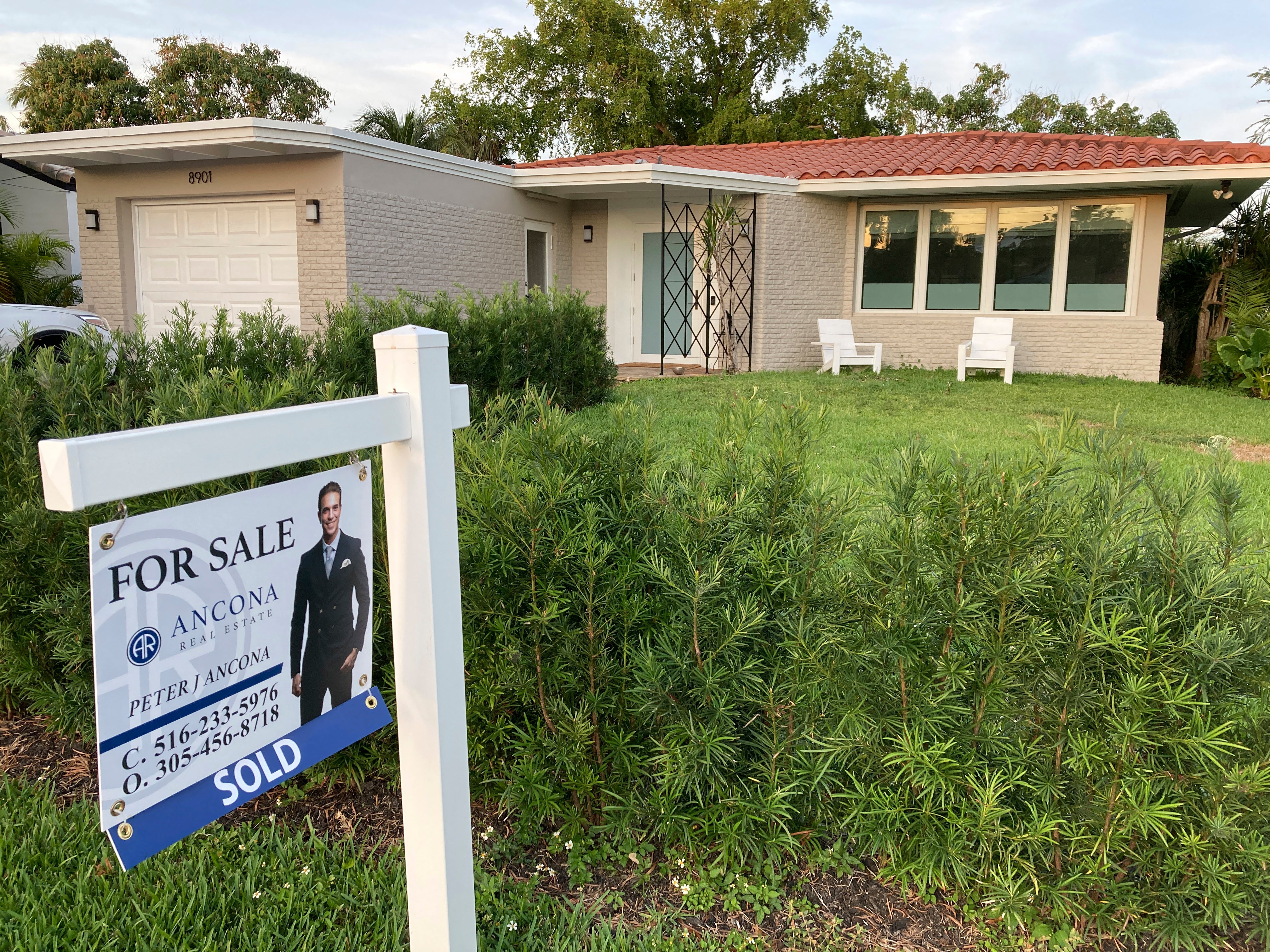Average long-term U.S. mortgage rates edge down to 5.25%
Average long-term U.S. mortgage rates retreated modestly this week, but interest on the key 30-year loan remains at decade-high levels

Your support helps us to tell the story
From reproductive rights to climate change to Big Tech, The Independent is on the ground when the story is developing. Whether it's investigating the financials of Elon Musk's pro-Trump PAC or producing our latest documentary, 'The A Word', which shines a light on the American women fighting for reproductive rights, we know how important it is to parse out the facts from the messaging.
At such a critical moment in US history, we need reporters on the ground. Your donation allows us to keep sending journalists to speak to both sides of the story.
The Independent is trusted by Americans across the entire political spectrum. And unlike many other quality news outlets, we choose not to lock Americans out of our reporting and analysis with paywalls. We believe quality journalism should be available to everyone, paid for by those who can afford it.
Your support makes all the difference.Average long-term U.S. mortgage rates retreated modestly this week, but interest on the key 30-year loan remains at decade-high levels.
Mortgage buyer Freddie Mac reported Thursday that the 30-year rate slipped to 5.25% from 5.3% last week. By contrast, the average rate stood at 3% a year ago.
Earlier this month, the Federal Reserve intensified its fight against the worst inflation in 40 years by raising its benchmark interest rate by a half-percentage point and signaling more big rate hikes to come. The Fed’s move, its most aggressive since 2000, will mean higher costs for mortgages as well as credit cards, auto loans and other borrowing for individuals and businesses.
Last week, the government reported that U.S. producer prices soared 11% in April from a year earlier, a hefty gain that indicates high inflation for consumers and businesses will linger in the months ahead. In a separate report last week, government data showed that consumer prices jumped 8.3% last month from a year ago, just below the 8.5% year-over-year surge in March, which was the highest since 1981.
Homeownership has become an increasingly difficult aspiration recently, especially for first-time buyers. Besides staggering inflation, rising mortgage rates and higher home prices, the supply of homes for sale continues to be scarce.
Some economists predict that home sales this year could decline as much as 10% from 2021 levels.
"Economic uncertainty is causing mortgage rate volatility,” said Freddie Mac Chief Economist Sam Khater. “As a result, purchase demand is waning, and homebuilder sentiment has dropped to the lowest level in nearly two years.”
Khater noted that builders are also facing rising costs.
The average rate on 15-year, fixed-rate mortgages, popular among those refinancing their homes, slipped to 4.43% from 4.48% last week. That rate was 2.29% a year ago.